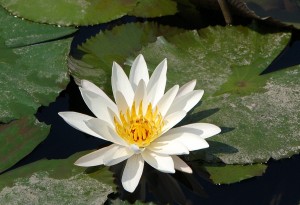 If you ever thought that getting access to a psychiatrist is difficult in Toronto, you should try spending a couple days on the Tobique First Nation reserve in New Brunswick.
If you ever thought that getting access to a psychiatrist is difficult in Toronto, you should try spending a couple days on the Tobique First Nation reserve in New Brunswick.
The addiction counselors and children, family and youth workers I met there were full of heart and spirit and were fearless when it came to disclosing their own personal stories of oppression, violence, trauma and addiction.
Getting to the Tobique First Nations Reserve was an easy 2 hour drive from Fredrickton. All I needed to do was follow the Trans Canada highway west, which ran along side the St. Johns River.
 The small outpatient drug and alcohol treatment clinic, where I conducted a workshop on the topic of concurrent disorders was called the Wolastoqewiyik Healing Lodge. Having never had the privilege of facilitating a workshop on a reserve, let alone even being invited to one, I was a little apprehensive about what knowledges, experiences and teachings I could bring to their community. After all, I am a Jewish, white city slicker from Toronto.
The small outpatient drug and alcohol treatment clinic, where I conducted a workshop on the topic of concurrent disorders was called the Wolastoqewiyik Healing Lodge. Having never had the privilege of facilitating a workshop on a reserve, let alone even being invited to one, I was a little apprehensive about what knowledges, experiences and teachings I could bring to their community. After all, I am a Jewish, white city slicker from Toronto.
One of the elders of the community, Dimond, started the day off by receipting a prayer to welcome the spirits into our learning space. This tradition is done at the beginning and the end of all gatherings, so that the spirits can watch over its people and protect them.
It was evident through our conversations that the whole community was living with the after maths of multi-generational trauma. Many of them were trauma survivors. Their families were sent to residential schools, were not allowed to speak their language and they were removed from their families and traditions. Many of them were beaten, physical and sexual abused and many of them dropped out of school.
When it was finally my time to introduce myself, I was very mindful of the fact that I was a white man coming to their land to teach them what I knew about counseling. I realized that although I could never truly understand the challenges they faced, I was able to share with them my own personal family history of my grandparents leaving Poland before WW II and the oppression, and abuse they experienced as a result of the Nazis. My whole family was ruthlessly murdered in the holocaust and my grandparents were the few people in their family to make it out of Europe alive. I know that many of my beliefs and values around standing up for the under dog and being an activist, fighting for people’s preferred life directions, equality and the inherent dignity of all human beings, was shaped by the experiences my family faced leaving Europe and starting a new. They told me that they appreciated this story of my own personal history with oppression because it helped them shift their perspective, that oppression happens, throughout time and space everywhere.
 How many generations will it take for the first nation community to heal?
How many generations will it take for the first nation community to heal?
Often clients who seek my help are already feeling quite isolated, and ashamed about the problems they are presented with. One of the mantras that I preach is that,
“The person is not the problem, the problem is the problem.”
My therapeutic work is influenced by the idea that people coming to see me in therapy are much more complex and interesting than the narrow descriptions they often come to therapy with. I hold the assumption that people arrive into therapy with numerous skills, competencies, beliefs, values, survival skills, commitments and abilities. I believe that uncovering, discussing and appreciating a person’s unique abilities assists them in the process of changing their ‘relationship’ with the problems in their lives.
My role as a counselor is to create a platform for individuals, couples and families to tap into their own knowledges, expertise and inner wisdoms and stand up to structures of power that often leave them feeling helpless, alone and marginalized. This could be the health care system, schools, bullying, or the government.
Maybe its naive and overly idealistic of me to think that people can truly make a difference in the communities they live in. If that is the case then I openly admit that I am a shameless idealist. I believe that changes can happen and problems can dissolve when people and communities are encouraged to separate their lives and relationships from specific historical ideas, influences, patterns and stories they judge to be oppressive, impoverishing and no longer serving their best interest. I do believe that time does heal wounds and people have a lot more power than they often give themselves credit for. With this assumption in mind I encourage people to discover ways to live and be in relationship that fit with their own preferred stories of personal health and well being.
I was really touched by the people I met in Tobique and its encouraging and inspiring to know that there are dedicated counselors there fighting for the health and well fair of their community.
